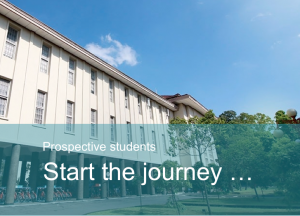Objectives of MBKM Internship
The objectives of the Merdeka Belajar – Kampus Merdeka (Freedom to Learn – Independent Campus– MBKM) policy, a program of “the right to study for 3 semesters outside the study program” are to improve the graduate’s competencies, both soft skills and hard skills, to be ready and relevant to the needs of the times, prepare graduates as future leaders of the nation that are excellent and have great personalities. Experimental learning programs with flexible paths are expected to be able to facilitate students to develop their potentials in line with their passions and talents.
To implement the activities of MBKM, students of the Undergraduate Program in Computer Science UGM are allowed: (1) take elective courses from outside the Computer Science FMIPA UGM study program, that is, by taking courses from (a) other study programs within UGM; or (b) other study programs outside UGM, either domestics or overseas, that have equal or higher accreditation levels than the accreditation level of the Undergraduate Program in Computer Science FMIPA UGM.
click check boxes to see more each content
Type of MBKM Internships
Students are also allowed to choose/perform other MBKM activities on a government agency/organization/institution or a credible or reputable (nationally or internationally) company, either located inside Indonesia or overseas. These MBKM activities are: (2) internship or field practice work activities; (3) school assistance activities; (4) research activities; (5) independent project activities; (6) village projects activities; (7) entrepreneurship activities; (8) humanitarian project activities.
These MBKM activities, not only aim to improve the graduate competencies, but also to provide experience/training directly in the field of computer science, information technology, or related to the utilization/implementation of the latest computer science and information technology to solve real problems. MBKM activities also aim to obtain recognition/equivalency as a supplement/complement of the elective courses for the students’ study in the Undergraduate Program in Computer Science FMIPA UGM. The details of these MBKM activities are presented in Table.
| NO | Type MBKM, Internships | Description | Notes * |
| 1 | Internship/work practice | Internship activities in a company, non profit foundation, multilateral organization, government institution, or startup company. | A list of the study program’s partners is provided in the study program’s website |
| 2 | Student exchange | Take one semester class in local or overseas universities based on cooperation agreements available | Grades and credits obtained from outside the study program’s universities will be equalized by the study program |
| 3 | School assistance | The activities could be in a form of being a teaching assistance in primary schools, transfer/tutorial in the field of computer, or extra curricular assistance to high school’s students or in a school unit | A list of schools is provided in the study program’s website, and also facilitated by the Ministry of Education and Culture |
| 4 | Student’s research | These activities could be in a form of academic research, latest trends in computer science, information technology, to students that is conducted under supervision from lecturers or researchers. | For example, these activities could be performed in a research institution such as LIPI/BRIN |
| 5 | Independent study/project | Students can develop a project based on a special topic, computer science or information technology-based competitions, and can be done together with other students, or take an academic certification package provided by partners |
Examples of these activities are academic certification programs offered by DIKTI; Bangkit program, AWS Academy, and Competition Activities |
| 6 | In a village project | Students can propose an innovation project based on computer science or technology to support community in the villages or rural areas to develop economical process of the community and infrastructure | Could be performed together with the village apparatus (chief of the village), BUMDes, Koperasi, or other village-based organizations. |
| 7 | Entrepreneurship activities | Students can develop an entrepreneurship activity independently, proved by explanations/entrepreneurship activity proposal and proof of consumer transactions. | Examples of the study program’s partners are startup companies, alumni companies, and others |
| 8 | Humanitarian project | Students can perform humanitarian and social activities that are linked to the utilization or support of computer science, information technology from a humanitarian organization located locally or overseas. | Examples for these organizations are formal organizations recognized by the study program, for example Indonesian Red Cross, Deru UGM, Mercy Corps, BNPB, and others |
*Notes: every MBKM activities must be supervised by a supervisor lecturer of internship (DP internship), except for the MBKM student exchange activities.
These MBKM courses can be selected starting from the fifth (5) semester. However, the study program wishes that students take these MBKM courses fully in the last semester to overcome the limitations of area, other courses, or conflict
of courses scheduling that may happens in the Undergraduate Program in Computer Science FMIPA UGM.
The complete technical guides of implementation or the Standard Operational Procedures technical document for each MBKM activity, are available in the Computer Science Study Program FMIPA UGM’s website.
Procedure and Mechanism of the MBKM Internships
In more details, the steps or implementation mechanisms of an MBKM activity within the Undergraduate Program in Computer Science FMIPA UGM are as follows the Figure 3.10:

Figure 3.10 Flow Diagram of the Implementation of MBKM Activities
website.
SIMASTER UGM application.
by the DP internship.
performed online, if necessary) to evaluate the grade reviews from DP internship and/or DP Partner).
program.

